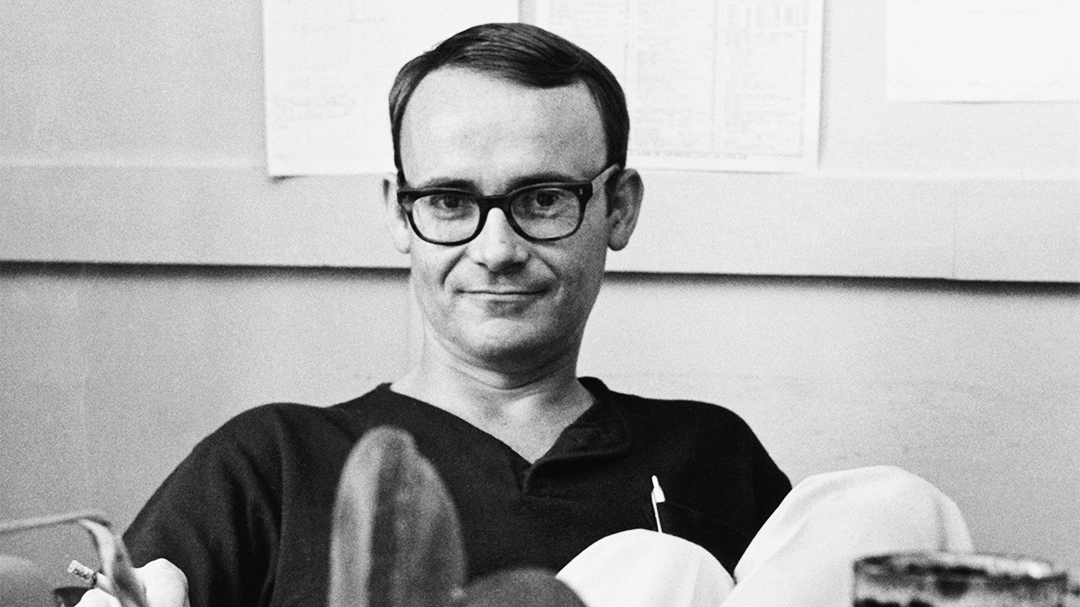Buck Henry, ‘Graduate’ Writer and ‘Get Smart’ Co-Creator, Dies at 89
By Rick Schultz
LOS ANGELES (Variety.com) – Buck Henry, a writer, actor and director whose 1967 Oscar-nominated adapted screenplay for “The Graduate” captured a generation’s frustration with their parents’ conspicuous consumption and rigid expectations, died Wednesday in Los Angeles. He was 89.
“,” from a novel by Charles Webb, launched Henry’s film writing career, which also included memorable 1970 adaptations of Joseph Heller’s “Catch-22” and Bill Manoff’s hit Broadway play “The Owl and the Pussycat.” He also adapted Joyce Maynard’s novel “To Die For” for the 1995 Gus Van Sant film that starred Nicole Kidman.
“I can write in anybody’s voice,” Henry told an interviewer in 2009, “which is why I am most successful adapting books and plays.”
Most recently he and Michal Zebede co-scripted an adaptation of Philip Roth’s 2009 novel “The Humbling” for a film directed by Barry Levinson and starring Al Pacino and Greta Gerwig that was released in January 2015.
Henry was one of the writers of the smash 1972 screwball comedy “What’s Up, Doc?” And he shared a co-director Oscar nomination with Warren Beatty for 1978’s “Heaven Can Wait.” Henry also appeared in the hit film as an exasperated, bureaucratic angel. (He also directed the less-successful “First Family” in 1980.)
In 1965, Henry co-created with Mel Brooks the highly successful spy spoof “Get Smart” for NBC. Brooks exited after the pilot episode, but Henry stayed for two seasons, winning his second Emmy in 1967 for the two-part “Ship of Spies.” Henry once said it made him happy to hear that real FBI and CIA guys liked “.” He had heard there was an FBI museum exhibiting the shoe phone and Cone of Silence from the series. “I hope that’s true,” he said.
Henry had won his first Emmy in 1965 for “That Was the Week That Was” (NBC), a news satire show now viewed as a precursor to “The Daily Show.”
“Get Smart” helped open the door to Henry’s film writing career. Henry told author Mark Harris in “Pictures at a Revolution” that hiring him for “The Graduate” was “a leap of faith” on director Mike Nichols’ part. “He was really just going on personality and ‘Get Smart,’” Henry said.
Henry, who appeared in “The Graduate” as a hotel clerk, was the fourth screenwriter hired by Nichols. Starting from scratch, he toned down the smugness of Benjamin Braddock, the character played by Dustin Hoffman. He also invented one of the film’s most memorable lines, in which a middle-aged businessman offers Braddock advice about his future: “I just want to say one word to you — plastics.” That piece of dialogue was not in the original novel.
In a 1997 interview with National Public Radio, Henry said he almost dropped the line, thinking it was “a sort of ’50s society way of complaining about falseness.” But it resonated with younger audiences and helped turn the film into a classic.
Other films Henry wrote included “The Owl and the Pussycat,” thriller “The Day of the Dolphin” and “Grumpy Old Men.”
Between 1976 and 1980, Henry hosted “Saturday Night Live” 10 times. The “Samurai” sketches with John Belushi were among his most popular. He played Mr. Dantley, who seemingly understood every word of Belushi’s fake Japanese. More controversial were his two Uncle Roy sketches, with Henry playing a giddily pedophilic uncle babysitting Laraine Newman and Gilda Radner. The sketches ended with “I think there’s an Uncle Roy in every family.”
A gifted comic actor, Henry played Liz Lemon’s father on “30 Rock” (NBC) in 2010. He appeared twice in 2007 as a correspondent on “The Daily Show” and in multiple episodes of “Hot in Cleveland” in 2011, playing Betty White’s boyfriend.
Henry appeared in many films, including Milos Forman’s “Taking Off” (1971), “The Man Who Fell to Earth” (1976) and “Eating Raoul” (1982). In the opening scene of Robert Altman’s “The Player” (1992), Henry plays himself, pitching a loony gothic version of “The Graduate, Part Two.” In 2011, he was asked what he really thought about making a sequel to perhaps his most iconic film. “I did my best to kill it,” he said. “They would have been hard put to make it without Mike and Dustin. All things you love have an excuse to be of and by themselves.”
In 2009 Henry appeared Off Broadway in Lisa Ebersole’s play “Mother,” but the New York Times panned, blaming the writer.
Henry Zuckerman, the only child of silent film star Ruth Taylor and Paul Stuart Zuckerman, an Air Force general and stockbroker, was born in New York City. He took the nickname “Buck” from his grandfather, who was also a stockbroker, known for “bucking” the market. Henry legally changed his name in the 1970s. He attended Choate and Dartmouth.
Henry’s gift for comedy writing developed out of his acting experience with Greenwich Village improvisational troupe the Premise in 1960 and was honed by writing for the Steve Allen and Garry Moore television shows.
In the 1950s and early ’60s, Henry worked in New York dubbing foreign films including “The Bridge” and “The Cranes Are Flying.” He can also be heard in the Hercules films of that era.
From 1959-62, he generated some notoriety by pretending to be G. Clifford Prout Jr., the president of the Society for Indecency to Naked Animals (SINA). Henry called the prank organization “a parody of uptight, silly morality chasers.” (Slogans included “A nude horse is a rude horse.”) But Walter Cronkite, who broadcast a serious segment on SINA for CBS News, never forgave Henry for not letting him in on the joke.
He is survived by his wife, Irene.

